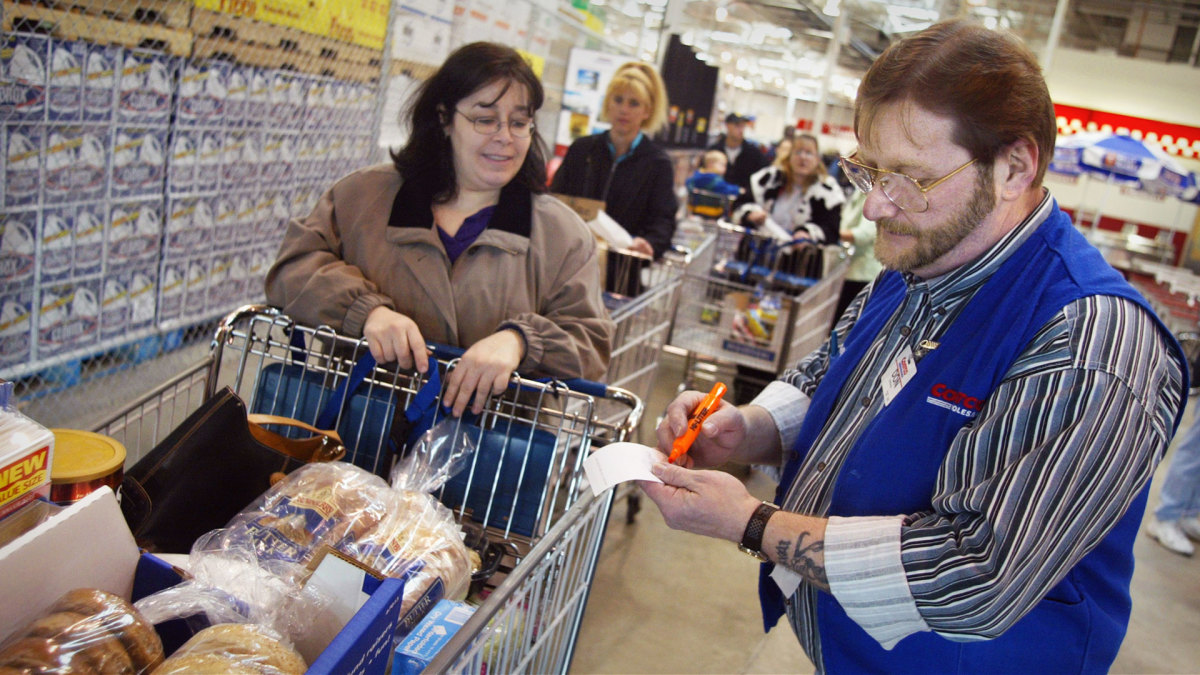
Theft remains a retail hot topic.
A number of major big-box retailers have said that shrink, the industry term for theft, has become an increasing problem. Both Target and Walmart have said that organized retail crime has pressured profit margins and hit their bottom lines.
They're not alone. Theft and organized retail crime have been brought up by countless retailers including Home Depot, Walgreens, and Dick's Sporting Goods (DKS) -).
Many major retailers have reported increased losses due to theft and they blame everything from law enforcement, the laws themselves, and nefarious groups who blatantly steal because they know they'll face few, if any, consequences.
DON'T MISS: Huge retailer closing stores, shrinks popular brand
Lowe's (LOW) -) Chief Executive Marvin Ellison places some of the blame on his rivals and their business practices.
"Having spent my entire adult life in retail, at every level, the one thing that I understand clearly is that the greatest deterrent for any theft activity is effective customer service and making sure that you have the right type of merchandising display," he said in a recent speech.
That shifts the focus away from the organized-crime argument and suggests that some — maybe a lot of — theft goes away if you treat people well.
Costco Chief Financial Officer Richard Galanti had an even simpler answer on the topic of shrink during his company's fourth-quarter-earnings call.

Image source: Xinhua/Ting Shen via Getty Images
Costco offers a simple answer on retail theft
In an environment where many retailers have struggled, Costco continues to put up impressive numbers.
Sales climbed 9.4% in the quarter and, when you take out lower gas prices, same-store sales would be up 3.1% in the U.S. The chain also had some fairly stunning membership numbers.
"We ended the fourth quarter with 71 million paid household members, up 7.9% versus a year ago; and 127.9 million cardholders, up 7.6%. And that's on new openings over the past year of — just under 3% increase in new locations," Galanti said.
For the most part theft has not been a problem at Costco, but the CFO does quietly share an answer that could solve some of the shrink problems at Walmart and Target,
"First, we are asked often about our inventory shrinkage results and whether it has dramatically increased in the past year versus historical shrink results. The answer is no," he said. "In the past several years, our inventory shrink has increased by a couple of basis points, in part, we believe, due to the rollout of self-checkout."
Self-checkout comes with increased theft. That's been well documented.
"Theft accounts for nearly 4% of inventory for retailers with self-checkout, compared to just 1.5% for traditional checkout," according to a report from the U.K.'s University of Leicester.
Costco still uses self-checkout only at limited locations, according to its website. That may explain why its shrink numbers are better than those of its rivals.
"Over the past year, [shrink] has increased by less than 1 basis point [0.01 percentage point] more. So, no, thankfully, not a big issue for us," Galanti added.
Costco does not embrace every trend
One option to cut shrink while also reducing labor is using scan-and-go technology as Amazon does at its convenience stores. That makes theft much harder as customers need to have an app connected to a credit card to check out.
That's not technology Costco plans to adopt anytime soon.
"I don't think we're prepared for scan and go yet," Galanti said. "We're just going to scan, but they can't go."
Costco has also been against the idea of express checkout lanes in its stores for a very logical reason.
"We’ve found that most of our members purchase an average of 16 items per visit, which would mean that, on average, the express aisle would be the least used of all our registers," the chain said on its website.
"That’s why we made the decision not to include express lanes — at least for now."
Sign up for Real Money Pro to learn the ins and outs of the trading floor from Doug Kass’s Daily Diary.







